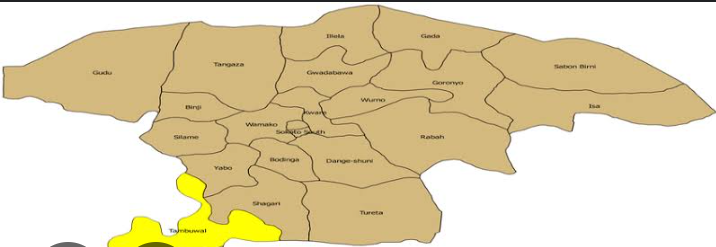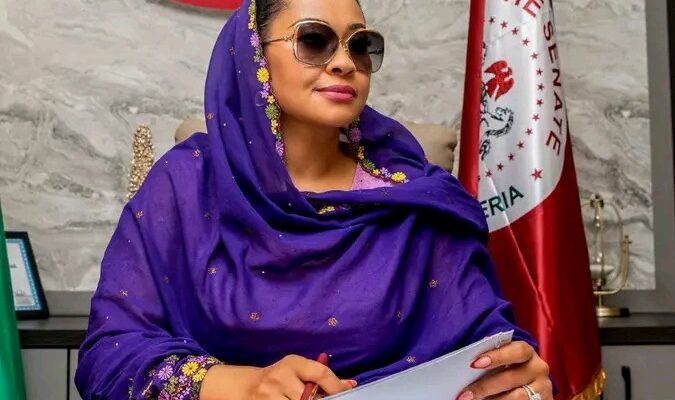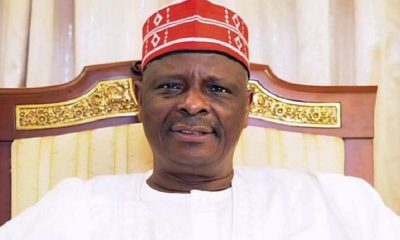News
Christmas day tragedy: Many feared dead as Nigerian Military Jet Bombs Sokoto Communities In Error

By Kayode Sanni-Arewa
A fighter jet targeting the notorious Lakurawa terrorist group has mistakenly bombed two communities in the Silame Local Government Area of Sokoto State, leaving many feared dead and several others injured.
The tragic incident occurred in the wee hours of Wednesday, December 25, 2024, affecting the villages of Gidan Sama and Rumtuwa. Villagers Caught in Airstrike.
Eyewitness accounts reveal that the villages, situated near the Surame Forest—a known hideout for Lakurawa terrorists and bandits—were unintentionally targeted during the airstrike. Residents described the moment bombs started dropping on the peaceful communities, catching the villagers unawares.
A source revealed that at least 10 people had been confirmed dead, while others sustained varying degrees of injuries.
Local officials, however, are still working to assess the full extent of the casualties and damage.
The chairman of Silame LGA, Alhaji Abubakar Muhammad Daftarana, expressed his deep sorrow over the incident.
“The villagers were innocent and peace-loving people with no criminal records.
“We are still assessing the development and cannot yet confirm the exact number of casualties,” Daftarana stated.
The Sokoto State Police Command has declined to comment on the incident, stating it was not a police operation.
Rising Concerns Over Lakurawa Terrorist Group The Lakurawa group has been linked to increasing attacks in the northern region of Nigeria, prompting calls for a specialised paramilitary force to counter their activities.
Prominent Islamic cleric Sheikh Ahmad Gumi recently urged the federal government to prioritise action against the group, describing their growing presence as a significant security challenge.
News
Natasha’s TikTok vibe to Tinubu’s song raises concerns about potential defections

The suspended lawmaker representing Kogi Central, Senator Natasha Akpoti-Uduaghan, on Saturday, sparked controversy of an imminent defection when she shot a viral video of herself vibing to a music praising President Bola Tinubu.
In the 15-second clip posted on her TikTok page, the senator was seen giggling as she repeatedly played the track by popular Kano musician, Dauda Kahutu, otherwise known as Rarara.
The musician had regaled the President with a performance of his new Yoruba song titled ‘Asiwaju Omo Ologo’ at a dinner event held in Katsina during his official visit.
Asiwaju Omo Ologo translates to mean ‘Asiwaju the glorious child’.
Akpoti-Uduaghan’s action has left her supporters confused, with many wondering if she plans to dump the Peoples Democratic Party for the ruling All Progressives Congress (APC).
The PUNCH could also not independently verify if her subtle action is an affirmation of an imminent defection or another satire deployed to embarrass the APC-led government.
Efforts to get the reaction of the Kogi senator were unsuccessful.
Her media aide, Israel Arogbonlo, could also not be reached on the phone for clarification.
As of the time of filing this story, he could not be reached again.
Akpoti-Uduaghan was suspended on 6 March following a heated disagreement with the Senate leadership over a new seating arrangement, which she alleged was designed to undermine her.
Tensions rose further when she accused Senate President Akpabio on national television of punishing her for rejecting his purported sexual advances.
During the Women in Parliament session at the Inter-Parliamentary Union meeting at the United Nations in New York, Akpoti-Uduaghan called for international intervention to hold the Nigerian Senate accountable.
She also criticised the severe measures imposed on her, including the withdrawal of security, salary cuts, and a six-month suspension from the National Assembly.
Following a series of legal fireworks between both parties, the court barred the duo from talking to the press and commenting on the issue until the legal outcome of the case.
Last Sunday, two days after Akpabio led a Federal Government delegation to the Vatican, the Kogi Central senator wrote a satirical ‘Apology Letter’ directed at the office of the Senate President.
News
Ex-provost AUN, Prof Baba’s loses three children in auto clash

A motor accident has claimed the lives of three children of Professor Yusuf Attahir Baba, the former provost of the American University of Nigeria, AUN, also known as ABTI American University Nigeria, in Yola, Adamawa State.
The tragic incident, which occurred Friday night, has left the academic community and the nation in mourning.
Former Vice President of Nigeria, Atiku Abubakar, who founded AUN, has expressed shock over the tragic incident.
In a statement, he said, “It is with a heavy heart that I condole with the family of Professor Yusuf Attahir Baba, former provost of the American University of Nigeria, on the loss of three children in a ghastly motor accident last night.”
According to him, “It is my wish that we put the family in our prayers at this difficult time, for Allah to comfort them and accept the return of the departed souls. Amin.”
Professor Baba, a respected academic and administrator, previously served as the provost of AUN, an institution renowned as Africa’s first development university.
The loss of his children has sparked an outpouring of condolences from colleagues, students, and the wider community, who are rallying to support the grieving family during the unimaginable tragedy.
News
Girl, Mother Beat Father To Death In Delta Community

A young girl identified as Onyinye and her mother have reportedly beaten her father to death.
The incident occurred along Urhobo Road in Sapele Local Government Area of Delta State after the man questioned her daughter’s second pregnancy out of wedlock.
According to the report, the deceased, a commercial tricycle operator, was reprimanding his daughter for the second pregnancy when she became angry and pounced on, beating him to stupor.
Onyinye’s mother was said to have quickly locked the door, joining her daughter in assaulting the husband until he fell and hit his head on the ground.
He was reported to have died instantly, before neighbors could intervene and force the door open.
Sources in the area said residents raised an alarm, inviting the police, who arrested both the mother and daughter.
When contacted, the Delta State Police Public Relations Officer, SP Bright Edafe, claimed that the matter had not been reported.
-

 News17 hours ago
News17 hours agoDefections: It’s a massive betrayal against NNPP -Kwankwaso cries out
-

 Education20 hours ago
Education20 hours agoTeenage girl drag JAMB to court over alleged hijab ban during UTME
-

 News10 hours ago
News10 hours agoTrouble brewing as Trump’s supporters move against Pope Leo, give reason
-

 News13 hours ago
News13 hours agoHow doctor stole one of my twins during birth, Abuja housewife narrates nasty experience
-

 News23 hours ago
News23 hours agoTInubu admits taking tough decisions to enable Nigeria grow
-

 News22 hours ago
News22 hours agoCourt orders blood transfusion for two-year-old girl despite her parents’ objections
-

 News22 hours ago
News22 hours agoIntroducing Ebule Oritsemeyiwa, a 16-yr-old who scored 334 in 2025 UTME
-

 News23 hours ago
News23 hours agoWhy I Issued ‘Mock’ Apology To Akpabio – Natasha


















